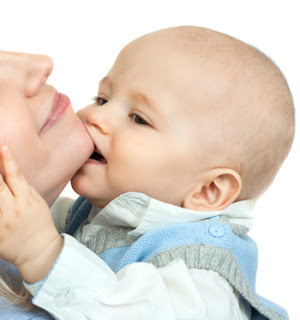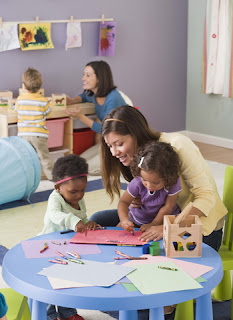The adaptation of a baby from 3 to 24 months to a nursery depends more on the attitude of teachers and caregivers to the baby's own. At this age, babies do not yet know what going to school, but children's center staff should be prepared to receive it. In addition, this work of preparation and adaptation should be shared with the baby's parents.
Attitudes of early childhood educators in adapting babies

The arrangement of the early childhood educatorsduring the first days is essential for the baby to feel comfortable and welcome. Thus, adaptation to kindergarten easier.
- When meeting with the baby, Educators should approach the baby showing respect and affection, without anxiety or overwhelm.
- Knowledge of child's name prior to their arrival at the school.
- Creating an atmosphere of emotional security individually and collectively.
- Control of situations. Educators must remain calm when faced with symptoms of maladjustment of the child (tantrums, cries, Inapetencias) but not abandoned.
- Individual attention, But not exclusive, especially in the everyday moments of arrivals, farewells or meals. Be understood as moments of great importance for the affective individually with the child. For this it is important to avoid rushing, bustling and nerves.
- Knowledge of the child's personality through a parent interview, observation of the child and their reactions to everyday situations in school.
Adaptation of the baby to the new space
Should introduce and familiarize the baby with the school area. Know where and how is the place where you will spend much of the day, offers confidence and safety.
- Knowledge of the class as a place that will develop their daily activities. Knowledge of space gives you security, maintaining the same benchmarks space and time. In terms of space: instead of play, eat, sleep, diapering, Etc. In terms of time: keep mealtimes, nap, Diaper changes, etc..
- Knowledge of dining room.
- Control the outside. Introduction, little by little, the patio space for games and recreation.
Relationship teachers with parents
This relationship must be based on trust and security that teachers conveyed to parents by:
- Interviews, Which are a way to meet parents and see their relationship with their children.
- Patience with parentsDevoting time to inform unfamiliar aspects at the beginning and helping them to the inputs and outputs are the least conflict possible.
- Establishment of clear limits parents from the beginning (timeliness, clothing marked the beginning avoid entering their classes), avoiding clashes.
- Arrange flexible hoursSo that, if possible, the child is in the center less than eight hours a day.
Activities for baby's development formentar
At this stage, parents and educators must begin a personal relationship with the baby, with emphasis on body language. As a suggestion, you can have fun with games: sawdust sawed, tickling, stroking, cucutras, songs, etc..
Material handling class can also be seen as a game and can start making towers, buildings, cloth, balls, etc.. Always respect the free game without giving too many slogans, drawing to observe their behavior. Try the food, naps and diaper changes do not become routine, as they are now suitable for communication with the child individually avoiding unnecessary haste and nervousness.
Let the baby can handling food to gain new object: spoon. Take advantage of diaper changing moments to talk, singing or name the parts of your body while the hand signals. The nap should be a time of relaxation and tranquility: you can put music and soft songs.





















